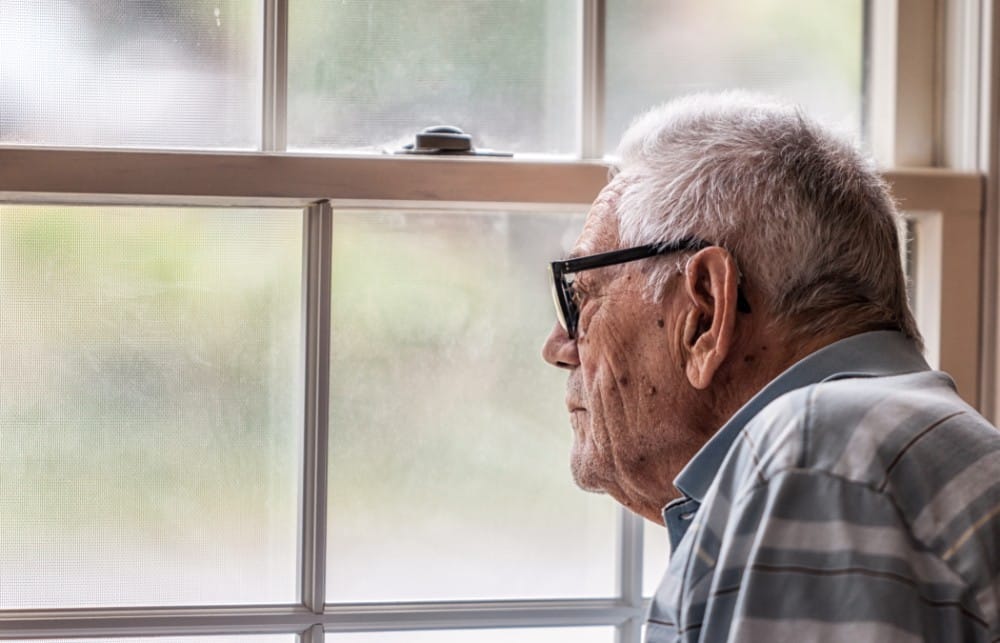According to Belgian psychiatrist Mathieu Vandenbulcke, psychological problems in the elderly are often insufficiently recognised and treated incorrectly. He calls for the re-evaluation of care and the development of a more positive view on ageing.
“When people become confused, surly or apathetic, it is not a normal part of aging,” the psychiatrist told De Morgen. “These are often symptoms of underlying problems that need to be investigated further."
Vandenbulcke believes that mental problems in the elderly are too easily attributed to the general weakening of the mind. Defeatism and therapeutic nihilism ensure that these problems are not optimally addressed.
"That is partly also due to the elderly themselves,” he says. “The threshold to go to a doctor for mental problems, and certainly a psychiatrist, is still very high for that generation. They also don't want to burden their families and friends with it. The result, according to a recent study, is that only one in five elderly people with mental disorder is in treatment for this."
According to Vandenbulcke, many elderly people are unaware of the mental health problems that can occur later in life. “Many people do not know that depression can manifest itself in the elderly in an atypical way; in irritability, physical complaints, memory problems or delusions,” he told De Morgen. “They don’t know that dementia can lead to a variety of symptoms, such as mood problems, loss of inhibitions and hallucinations. The result is that it is sometimes reacted to with misunderstanding, irritation and anger."
As we age our brain shirks. Some parts of the brain, such as the forebrain, reduce by five percent every ten years in a process that starts in young adulthood. As a result, the contacts between brain cells decrease and the so-called white matter bundles, which connect brain regions, lose quality. By the time we reach middle age, the effects start to be seen in slower thinking, having more difficulty with complex tasks and multitasking. We are also typically less able to come up with names, a phenomenon that can occur as early as the age of 50. This makes it difficult to determine whether an issue is down to normal decline or incipient dementia.
Related News
- Mental health remains taboo in many workplaces
- Four in ten French-speaking under-40s 'depressed', survey finds
- Quarter of young Belgians feel in poor physical or mental health
"The line between them is not so easy to draw,” Vandenbulcke says. “In Alzheimer's disease, it usually starts with memory problems. If you have a hard time remembering what you did in the past week, even when someone gives hints, that's cause for concern. When you feel that you can no longer function as before, and you are worried about it, it makes sense to go to a doctor. Even when people 'stop' and lose a sense of initiative, this can indicate dementia."
"About one in five elderly people will develop dementia sooner or later,” he adds. “According to some experts, up to 40 percent of dementia cases are preventable, or at least significantly delayed. In general, what is good for the heart, such as exercise and healthy nutrition, is also good for the brain. Stimulating your brain sufficiently also helps. Mental problems in the elderly often arise from boredom, because there is nothing to do."
Vandenbulcke believes that the core of the problem with caring for the elderly and their mental health comes from the fact that we as a society cannot cope with decline.
"I advocate a more positive view of aging,” he says. “Utility thinking and the focus on decay cause deep existential crises in the elderly. They question themselves and their place in society. While they often still have a lot to offer. We should involve the elderly much more than we do today. Retiring should not be synonymous with holidays, but with the freedom to decide for yourself how you still contribute to society."

